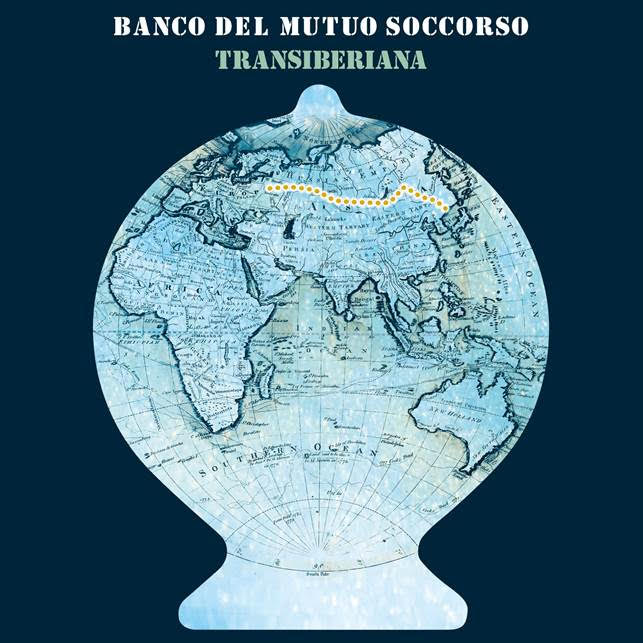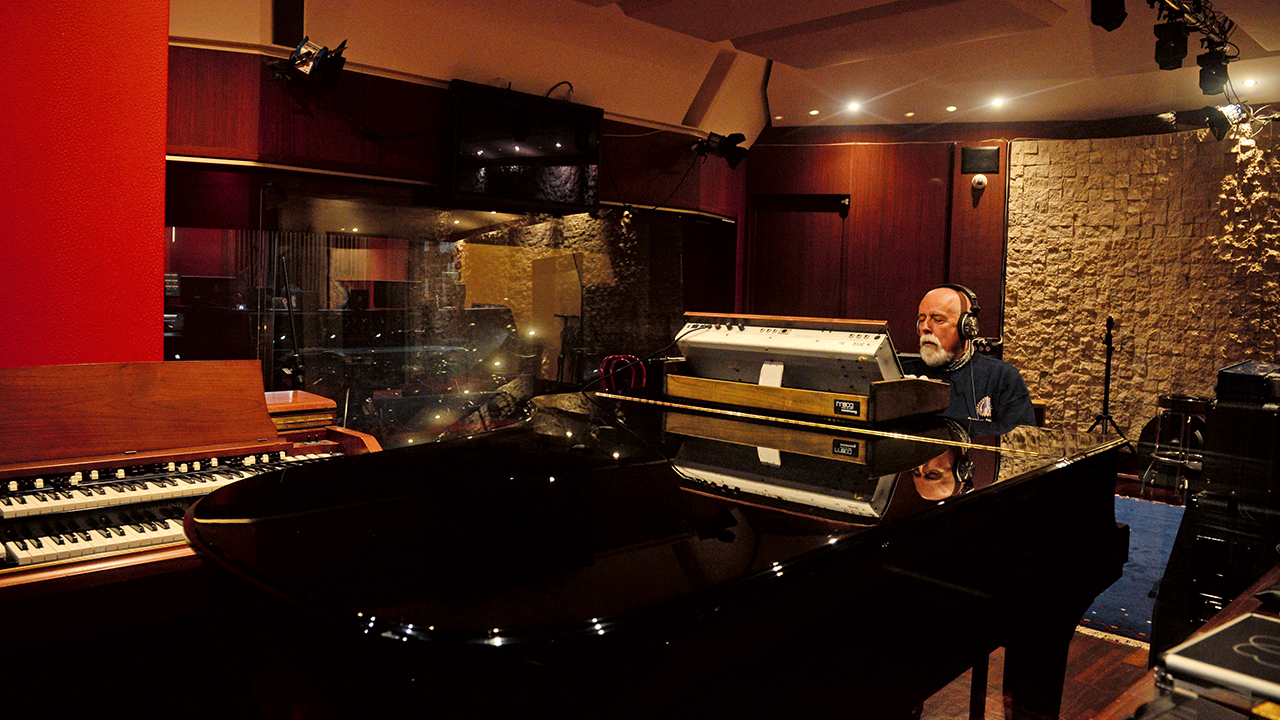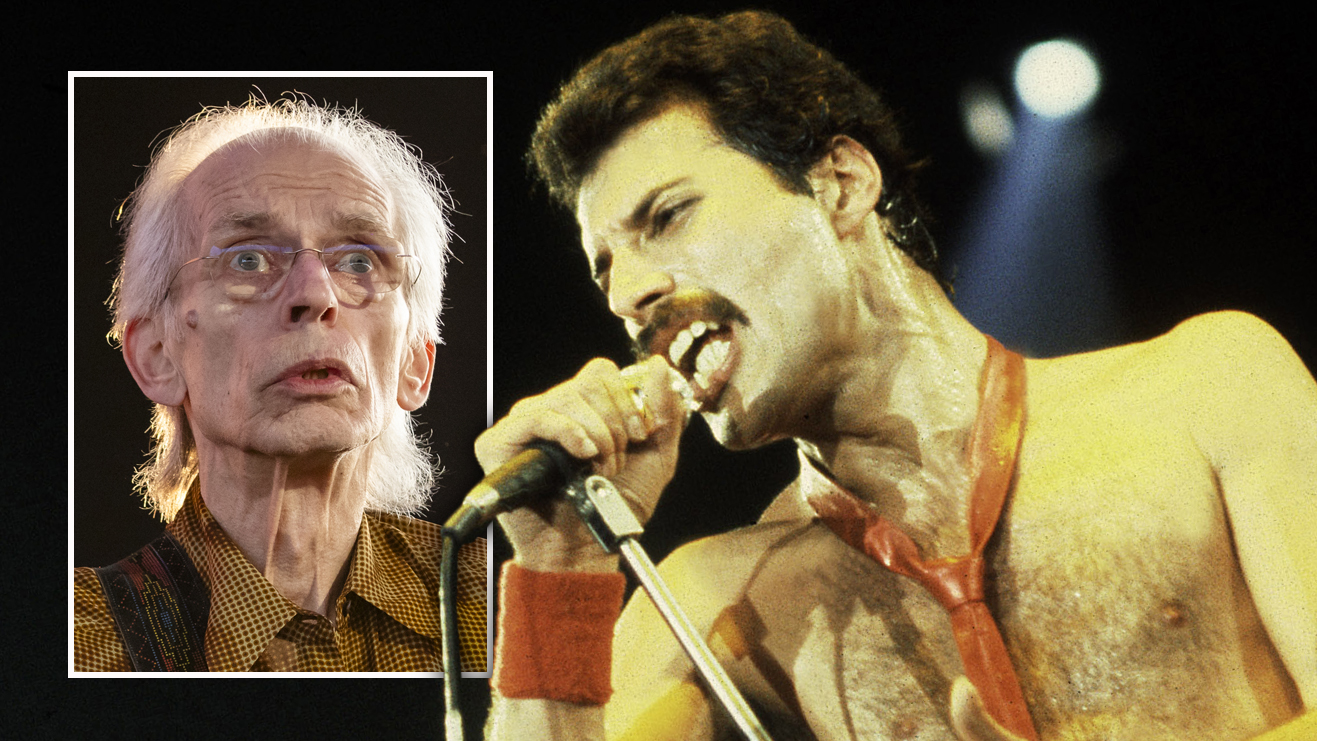"It’s a responsibility but also a privilege to share this same kind of consciousness with new generations of people." The fantastic return of Banco del Mutuo Soccorso
The story of the Italian prog legends Banco del Mutuo Soccorso return after 25 years with new album Transiberiana

Select the newsletters you’d like to receive. Then, add your email to sign up.
You are now subscribed
Your newsletter sign-up was successful
Want to add more newsletters?

Every Friday
Louder
Louder’s weekly newsletter is jam-packed with the team’s personal highlights from the last seven days, including features, breaking news, reviews and tons of juicy exclusives from the world of alternative music.

Every Friday
Classic Rock
The Classic Rock newsletter is an essential read for the discerning rock fan. Every week we bring you the news, reviews and the very best features and interviews from our extensive archive. Written by rock fans for rock fans.

Every Friday
Metal Hammer
For the last four decades Metal Hammer has been the world’s greatest metal magazine. Created by metalheads for metalheads, ‘Hammer takes you behind the scenes, closer to the action, and nearer to the bands that you love the most.

Every Friday
Prog
The Prog newsletter brings you the very best of Prog Magazine and our website, every Friday. We'll deliver you the very latest news from the Prog universe, informative features and archive material from Prog’s impressive vault.
Banco del Mutuo Soccorso were one of the spearheads of Italian prog in the 70s. In 2019 the band returned with Transiberiana, their first new album for a quarter of a century. Prog sat down with founder member and keyboard maestro Vittorio Nocenzi to get the inside story...
Second only to Britain’s own pioneering ground zero, the Italian prog rock scene in the early 70s was an undeniable epicentre for the entire genre. Despite the complex and often bewilderingly florid nature of their music, bands like Rome’s Banco del Mutuo Soccorso were genuine rock stars in Italy, performing in major venues and enjoying something approaching mainstream acceptance and acclaim. More than four decades on from that initial explosion, many of the Italian scene’s most significant players are still out there, reaping the rewards of longevity, and Banco (or BMS, as they refer to themselves) exhibit more vitality than most on their first album in 25 years, Transiberiana. As they prepare to unveil their new conceptual masterwork, Prog speaks with founder member and keyboard maestro Vittorio Nocenzi (with help from bassist Marco Capozi, who helpfully translates Vittorio into English for your shamefully monolingual correspondent). For Nocenzi, the Italian prog scene was a movement born from passion and youthful exuberance.
“Mostly in my mind, it was all about the youth movement in the early 70s,” he says. “We had a different perception of the future. That’s what made people’s feelings different. But why in Italy? I think the youth movement in Italy had a strong feeling of unity. They were very passionate and, in music, young people found a feeling of identity, and particularly in progressive rock. The lyrics were a kind of guideline for a way of living, almost in a religious, spiritual way. But prog was considered pop in Italy, you know? It was popular Italian music!”

Fans of Italian prog will be more than familiar with Banco’s early works, most notably their self-titled debut from 1972 and the conceptual splurge of Darwin! from later that same year: both records with a unique atmosphere and distinctive charisma.
Perhaps surprisingly, Transiberiana deftly taps into the spirit and sound of those revered classics. The line-up that Nocenzi has steadily assembled during the two decades since the last Banco album (1997’s Nudo) have pulled off the neat trick of loudly echoing the past while still sounding brightly contemporary. Given his near-50-year stewardship of the band, Nocenzi admits that finding the right musicians for this comeback was a painstaking process.
“The most important part of all of this was choosing the musicians,” he nods. “I had very specific criteria for it.”
“It’s funny, but this is the truth...” Capozi interjects. “The audition for our new
drummer [Fabio Moresco] was basically all about food and wine! We met at Vittorio’s studio, which is where he writes his music. He said to the drummer, ‘Do you like Amatriciana?’ It’s a kind of pasta, with bacon and tomato. The drummer said, ‘Yes!’ so Vittorio said, ‘Good, you’re in!’”
“It’s definitely not a joke. We are not kidding, I promise you!” chuckles Nocenzi. “It’s all a matter of symbolism. It might sound silly, but it’s a matter of choosing
people with whom you can have a deep connection. If the drummer was a vegan, we couldn’t have played this music together! When someone is too orthodox with something, whether it’s religion or any kind of fanaticism, it doesn’t help to create anything good. Fanatics don’t bring things together, they divide. Playing together means that at a certain time, you must reach an intimate connection with the other musicians. It can only happen between people that share the same feelings about important things in life. In the same way, we are all Roma supporters in Banco. I couldn’t play with a Lazio supporter! [Laughs]”
Sign up below to get the latest from Prog, plus exclusive special offers, direct to your inbox!
Beyond the need to circumnavigate vegans and Lazio fans, Nocenzi’s most daunting task was to find a replacement for Banco’s legendary vocalist Francesco Di Giacomo, who died in a tragic car accident in 2014 at the age of 66. Very much the voice of Banco from their debut album to their later, more polished works, his vibrant stage presence and astonishing vocal range were simply impossible to replicate. Fortunately, the right man for the job wasn’t far away.
“For me, truth was the main influence and the main goal in the process of finding
a singer,” Nocenzi states. “As the singer in BMS, a 20-year old boy wouldn’t have been suited, because nobody would’ve believed what he was saying. It simply wouldn’t be right. I wanted a young man, but a man, not a boy. I wanted a tenor voice. I also wanted someone who knew and loved the history of the band and Tony [D’Alessio] has always been a big fan of BMS. He knows the words, he knows the songs, and he was a friend of ours, too. Tony was the lead singer in another project of Filippo’s [Marcheggiani, Banco guitarist] and he was a close personal friend of both Francesco and I. So with that friendship, it was easy to choose Tony. It was a natural development of our connection.”

Showcased on Transiberiana, D’Alessio’s voice could hardly be better suited to the new material, which strikes a cunning balance between evoking the original Banco sound and allowing flashes of modernity to keep things fresh. Bursting with powerful melodies but often wilfully perverse and intricate, songs like La Discesa Dal Treno and I Ruderi Del Gulag share the same multi-genre DNA as their early 70s forebears, but canny production values and the subtle presence of electronics gently tether everything to the present day. Frankly, it’s an absurdly entertaining 54 minutes of music, whether you can understand a word of Italian or not. That said, Transiberiana is a full-bore concept piece, so hopefully a translation will be provided. Recounting the highs, lows, events and encounters of the 9,300km rail journey from Moscow to Vladivostok in the Far East of Russia, it’s a classic slice of multi-layered Banco indulgence. Dense with narrative detail and packed with wizards, shamans and a host of vivid characters, it may be the most absorbing and extravagant thing the Italians have ever released, but its central message is a simple one.
“Transiberiana is a metaphor for life,” Nocenzi vows. “The Trans-Siberian Railway is the longest railway trip you can make on this planet. To go on such a long trip reminded me of the long life of this band. After many years and so much music that we have created, it was good to write an almost autobiographical opera. A concept album is a novel, you know? The story speaks of all the challenges people face along the way. As usual in life, when difficulties surround you, life goes on. But the message at the heart of it all is that it is the journey that’s important, not the destination.”
Just a couple of years shy of his 70th birthday, Vittorio Nocenzi remains the living embodiment of that tricky-to-define but ever-irresistible Italian prog spirit. With his band firing on all cylinders (check out the bonus live version of first album classic Metamorfosi on Transiberiana for irrefutable evidence!), extensive touring plans on the horizon, a new deal with InsideOut Music and a remarkable new album to share, his fantastic voyage shows no signs of hitting the buffers.
“Making music has always been a challenge and now it’s a new challenge!” he declares. “Music always reflects the times that we live in. It’s a responsibility but also a privilege to share this same kind of consciousness with new generations of people. With BMS, there will always be something of quality and not just the sound of musicians grasping for success. I’m confident that people are always looking for new things and for quality music. That makes me feel good after all this time.”

Dom Lawson began his inauspicious career as a music journalist in 1999. He wrote for Kerrang! for seven years, before moving to Metal Hammer and Prog Magazine in 2007. His primary interests are heavy metal, progressive rock, coffee, snooker and despair. He is politically homeless and has an excellent beard.
